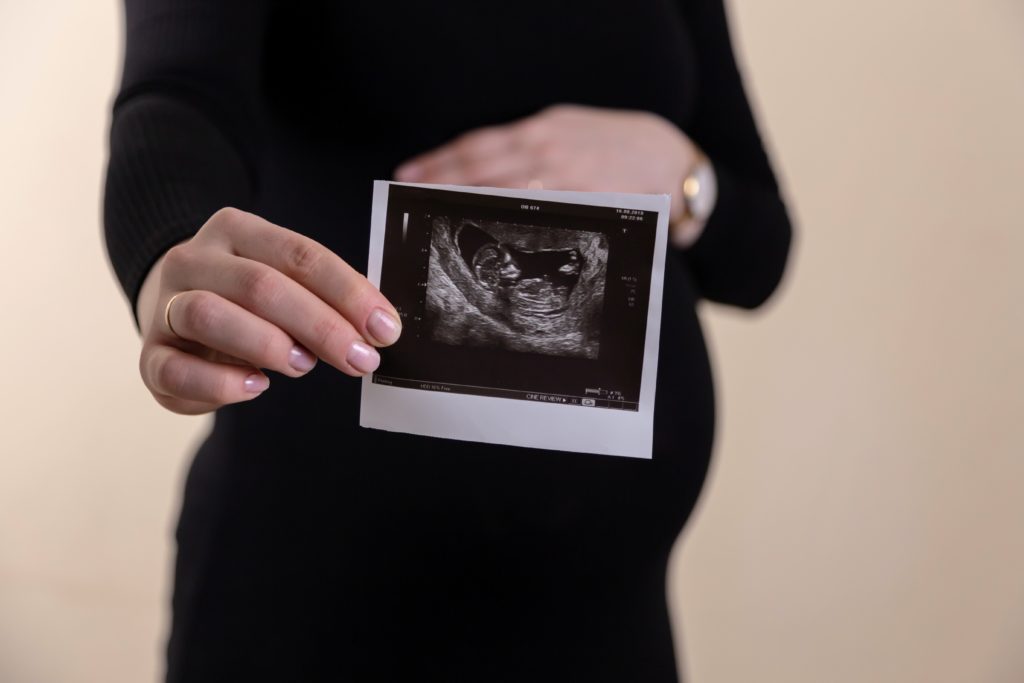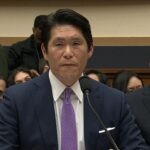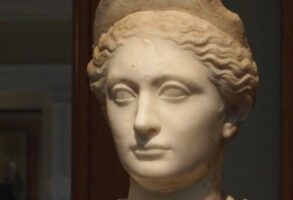
Published July 1, 2022
Dobbs v. Jackson has returned the issue of abortion to legislatures. There, pro-lifers will work to ensure that unborn children in every jurisdiction are protected by law. Though individual states can (and already have) sought to protect the most vulnerable human beings through ordinary legislation, constitutional protection of unborn children as equal “persons” under the law remains the movement’s ultimate — if elusive — goal.
Making this constitutional case will require rejecting the concept that a rights-bearing person is fundamentally self-owning and autonomous. Indeed, it is precisely the unborn child’s state of existential dependence upon its mother, not its autonomy, that makes it especially entitled to care, nurture and legal protection too. To exclude some human beings from the law’s protection because of their size, location and state of dependency (and post Roe, whichever jurisdiction their mother happens to be in) seems to pro-lifers an egregious human rights violation, just the kind we believe the 14th Amendment was meant to prevent.
But the reality of the unborn child’s utter dependence upon its mother — coupled with the availability of medication abortion which remains just a click of the mouse away — means that no abortion prohibition, on its own, is going to “abolish abortion.” My fellow pro-lifers and I will also need to make the case to expectant mothers, and fathers too, that their unborn children are, like the rest of us, dependent and needy persons — not expendable property.
In the way Americans have argued about abortion over the decades, a standoff exists between the rights-bearing autonomous person — who, as the Dobbs dissent argues, “owns” her own pregnant body — versus the fetus who she might view as impinging on that autonomy. The philosopher Judith Jarvis Thomson’s argument that a woman has “a right to decide what shall happen in and to her body,” more pithily rendered, “my body, my choice,” is, at base, a claim of “my body as property” right.
Americans have an understanding of property rights, deriving from the philosophy of John Locke, as absolute and unlimited. Today, leftists reject this view of property rights as applied to the economy yet, paradoxically, embrace it as applied to a pregnant woman and her unborn child. Indeed, explicitly employing the terms of American property law, abortion-rights supporters often liken the unwelcome fetus to a trespasser or invader, and the welcome one to an invited guest. The right to keep another off one’s property, employing the use of force as necessary, is basic to the Locke-inspired property rights paradigm in the United States.
Pro-lifers sometimes respond in a way that accepts, rather than challenges, the idea that people are autonomous. They can depict the fetus as floating alone, independent from her mother. Similarly, occasional calls on Twitter for the prosecution of women who have had abortions can imagine the unborn child this way too.
But abortion is not just like killing your toddler, just as restricting abortion is not just like enforcing bone marrow donations. Both analogies, put forth by abortion opponents and abortion-rights supporters respectively, fail by disregarding the natural and existential dependency of the unborn child upon its mother, an enveloping nurturance and protection that ultimately only the child’s mother can give.
Editors’ Picks
Overlooked No More: William B. Gould, Escaped Slave and Civil War DiaristA Filmmaker Imagines a Japan Where the Elderly Volunteer to DieA Chinese Telescope Did Not Find an Alien Signal. The Search Continues.Continue reading the main story
In the years before Roe, the pro-life case was more straightforward. As the historian Daniel Williams has shown in his magisterial “Defenders of the Unborn,” the pro-life movement in the late 1960s originated as a campaign promoting human rights. The message was that every human being has a right to life by virtue of being human. Human life, human being and human person were used interchangeably among pro-lifers, and as Dr. Williams shows, the movement envisioned a humane society that would stand in solidarity with both mother and child.
Indeed, that equivalence between a human being and a human person, historically speaking, is what scholarly proponents of fetal personhood lean on to defend their originalist constitutional claims that “person” in the 14th Amendment includes unborn human beings.
As the appendix to the court’s opinion in Dobbs shows, in the 19th century nearly every state’s code, in various words, included prohibitions against intending to procure an abortion in a woman with child — and these laws were often part of state codes’ “crimes against the person.” And the drafters of the 14th Amendment knew how to exclude the unborn from the category of “persons.” The drafters did so when they defined which persons were entitled to citizenship: “all persons born or naturalized in the United States.” They did not include the word “born” with “any person” in either the due process or equal protection clauses of the amendment.
But with the 14th Amendment jurisprudence of Roe and especially the 1992 Planned Parenthood v. Casey ruling came the focus on the personal autonomy of women seeking abortions, which implicitly demoted the legal status of their unborn children. Roe, grounding its holding in the “right to privacy,” cited longstanding family privacy and autonomy cases. Casey drew out the autonomy theme more explicitly: “These matters, involving the most intimate and personal choices a person may make in a lifetime, choices central to personal dignity and autonomy, are central to the 14th Amendment.” Women’s autonomy — or absolute self-ownership — required the right to exclude her child from her body. Furthermore, Casey claimed, as the dissent in Dobbs underscores, that such autonomy was necessary for women’s equal participation in economic and social life.
But another vision for women’s equality and liberty exists that challenges rather than accepts the ideal of autonomy. The 18th-century English philosopher Mary Wollstonecraft, author of “A Vindication of the Rights of Woman,” and her heirs that were in the 19th-century American women’s rights movement sought civil and political rights so they might better fulfill their responsibilities to others. As Wollstonecraft reasoned, “The only method of leading women to fulfill their peculiar duties is to free them from all restraint by allowing them to participate the inherent rights of mankind.”
So while Wollstonecraft viewed persons as individuals justly protected by rights, as she vied for equality, she urged both women and men not to dismiss their responsibility to others. For her, maternal and paternal responsibilities began not when the child was born, but when he or she was still developing in the mother’s womb. Achieving the kind of moral maturity that would regard service to and care of others as life-giving and fulfilling was life’s goal.
As the nascent child shares her mother’s body, the mother depends upon many others for her own sustenance and flourishing. This is the case in every pregnancy, of course. But the need of the expectant mother becomes more acute when she is poor or ill, or her life or health is endangered by the pregnancy. The woman with child means two vulnerable patients for doctors to care for and for insurance to support; capacious workplace accommodations and financial assistance; paternal duties expected, not ignored.
Without robust societal support of pregnant women and child-rearing families, too many pregnant women will be left to regard their unborn children as trespassers on their already taxed lives rather than unbidden gifts that open new horizons to them. These women need society’s utmost assistance — not abortion, or scorn.
Photo by Volodymyr Hryshchenko on Unsplash
EPPC Fellow Erika Bachiochi is a legal scholar specializing in Equal Protection jurisprudence, feminist legal theory, Catholic social teaching, and sexual ethics. She is also a Senior Fellow at the Abigail Adams Institute in Cambridge, MA, where she founded and directs the Wollstonecraft Project. Her newest book, The Rights of Women: Reclaiming a Lost Vision, was published by Notre Dame University Press in 2021.












